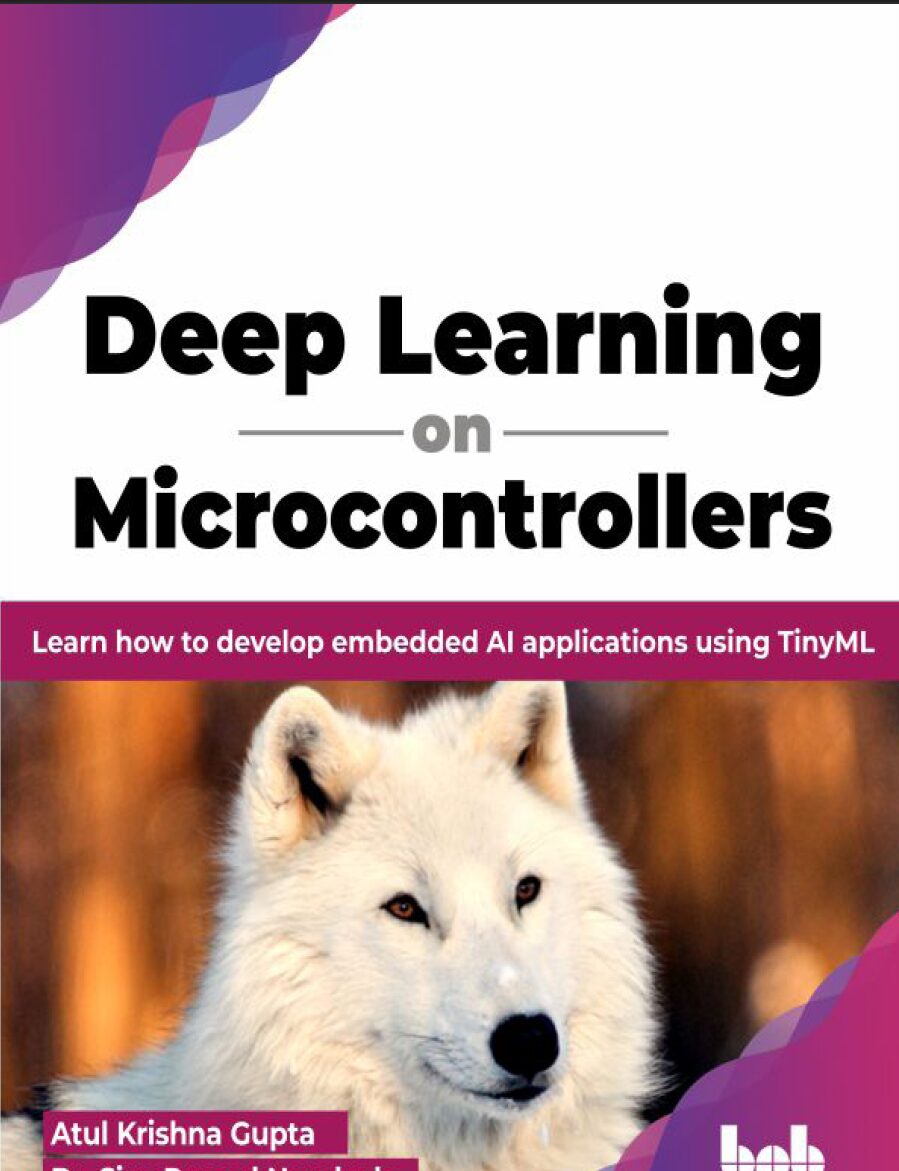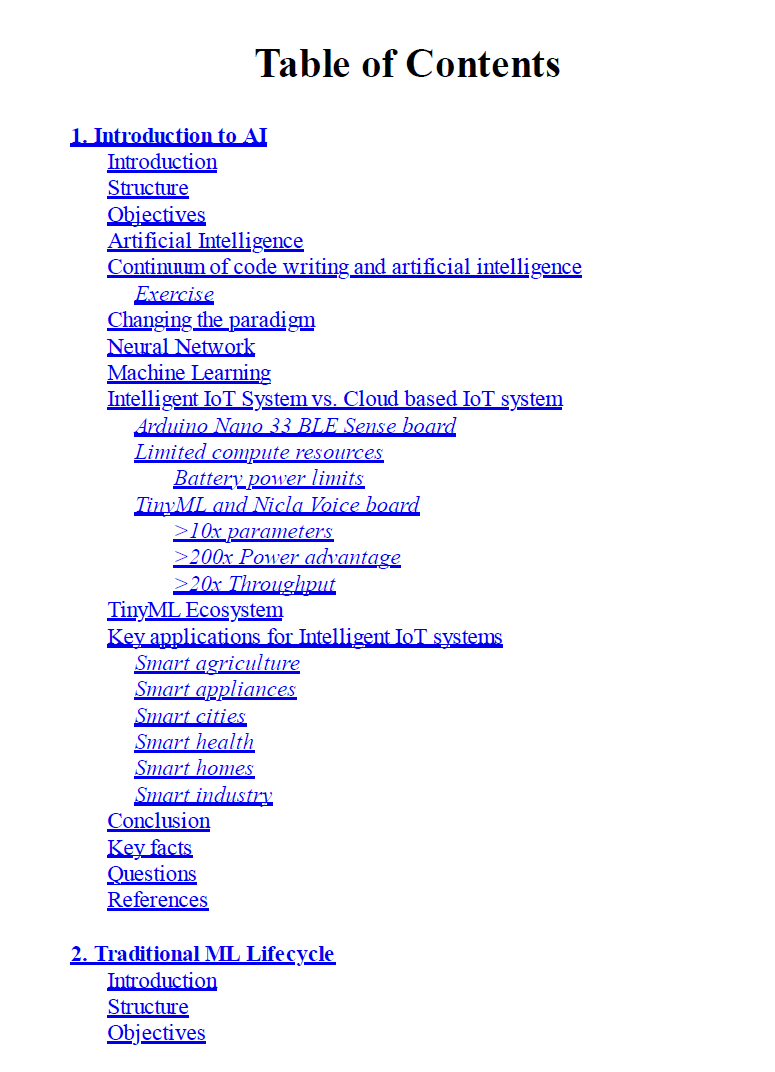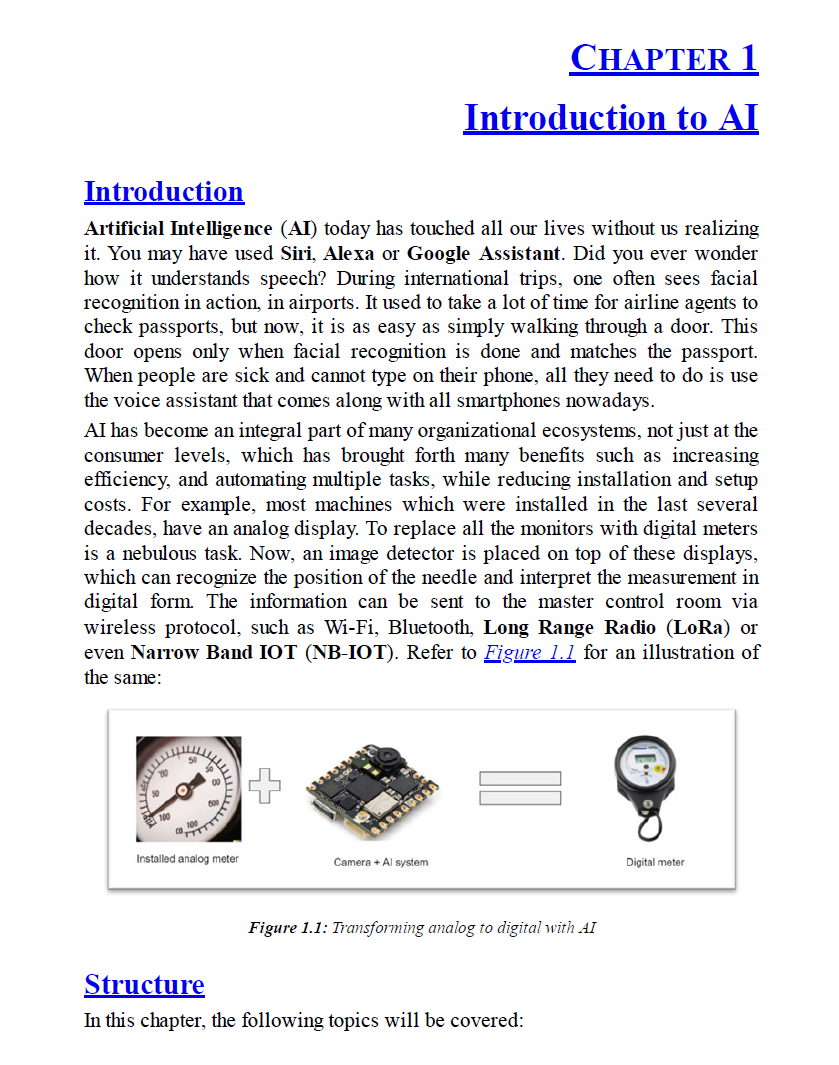
TinyML, or tiny machine learning, is used to implement machine learning on resource-constrained devices such as microcontrollers and embedded systems. If you want to leverage these low-cost, low-power yet remarkably powerful devices, then this book is for you.
This book aims to increase the accessibility of TinyML applications, especially for professionals who lack the resources or expertise to develop and deploy them on microcontroller-based boards. The book begins with a brief introduction to artificial intelligence, including classic methods for solving complex problems. It will also help you familiarize yourself with various ML model development and deployment tools, libraries, and frameworks suitable for embedded devices and microcontrollers. The book will guide you in building an air gesture digital recognition system and an AI project for keyword recognition using the Arduino Nano RP2040 board and the Syntiant TinyML board. Finally, the book summarizes the concepts covered and briefly introduces topics such as zero-shot learning, one-shot learning, federated learning, and MLOps.
By reading this book, you will be able to easily develop and deploy end-to-end TinyML solutions.
What You Will Learn
● Learn how to build a keyword recognition system using the Syntiant TinyML board.
● Learn how to build an air gesture digital recognition system using the Arduino Nano RP2040.
● Learn how to test and deploy models on Edge Impulse and Arduino IDE.
● Get tips for improving system-level performance.
● Explore various practical use cases of TinyML across different industries.
Who This Book Is For
This book is suitable for IoT developers, systems engineers, software engineers, hardware engineers, and professionals interested in integrating AI into their work. It is a valuable resource for undergraduate engineering students who are interested in microcontrollers and IoT devices but may not know where to start.
Table of Contents
-
Introduction to AI
-
Traditional ML Lifecycle
-
TinyML Hardware and Software Platforms
-
End-to-End TinyML Deployment Phases
-
Practical Use Cases
-
Experiments with TinyML
-
Advanced Implementations Using TinyML Boards
-
Continuous Improvement
-
Conclusion


Convenient Viewing
Convenient Download, please followZhuanzhi public account (click the above blue Zhuanzhi to follow)
Reply or send a message “TIML” in the background to get the download link for “[2023 New Book] Deep Learning on Microcontrollers: Learning How to Use TinyML to Develop Embedded AI Applications“


